Using design sprints to drive innovation and boost loyalty even during a global pandemic
Objective
Methodology
Zenitech suggested the implementation of design sprints, a quick and cost-effective approach to gaining high quality data from users, before launching new products or services. A typical design sprint will include a cross-functional team of designers, developers, product managers and stakeholders to generate ideas, create a prototype and test a solution to a specific problem or challenge. The five-day process will help answer any unknowns, avoid endless stakeholder debates and evolve new opportunities.
In response to the challenges posed by COVID-19 lockdowns and new ways of working, Zenitech were determined to prove that even in the event of a global pandemic, we could successfully utilise design sprints to drive innovation remotely. Such circumstances demanded careful planning to ensure domain mapping, collaboration, rapid ideation and user testing remained optimal, despite not being face-to-face.
Key insights
Gamification
Personalisation
Employer/employee rating system

Five key learnings from conducting remote design sprints
- Collaboration. Collaboration is pivotal to achieve success. Assembling a team with the right expertise, experience and technical knowledge is important. The remote approach enabled a broader range of roles, transcending geographical constraints and enabling enhanced collaboration.
- Communication. Pre-sprint checklists and strong communication will ensure you’re fully prepared. Creating a Slack or Teams channel for the team will ensure the team is ready and understands the requirements for the five days.
- Mental checkout. It’s difficult to gauge the team’s energy levels remotely. Take regular breaks to make sure the team is working to its maximum. Use the right tools to drive discussion and team input (our go to is Miro). It’s important to engage the full team and keep an equal balance between confident and shy individuals.
- Cost savings. Remote design sprints were proven to be successful and cost-effective; eliminating the need for travel, team lunches, office space and other workshop materials.
- Enjoy the time away from your emails. Fully include yourself in the process and switch off all methods of communications during workshops. Don’t be tempted to multitask.
User research cost savings
Although Zenitech’s initial hypothesis was correct, there’s significant evidence linking other subconscious features to long-term engagement. By creating a more empathetic and stimulating user experience, Zenjob will ensure it’s always able to adapt to the evolving needs of its users, in turn creating long-term brand loyalty.
Zenitech continues to learn from each partnership. Working in partnership with Zenjob,
we were able to gain valuable insights into Zenjob’s customer’s world, eliminating the guesswork to aid future product development to build a truly engaging user experience. The pandemic has forced new ways of working and we’ve proved that, by continuously learning and developing our services, remote design sprints can still deliver successful results.
User research is critical to help reduce risk, improve user experience and increase innovation by understanding the needs, goals and behaviour of your users. The Zenitech Digital Practice is experienced to help deliver data-driven product recommendations and we would love to discuss how we can help you achieve your goals.




